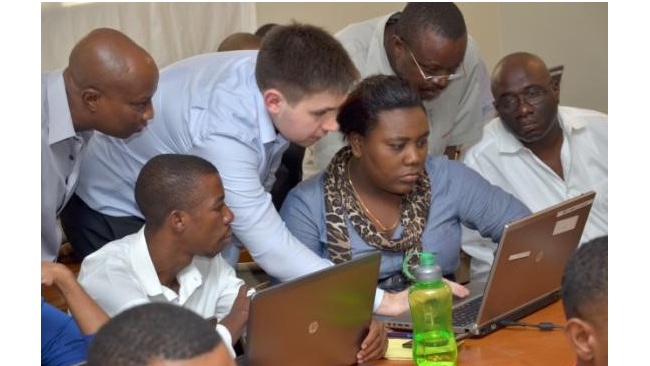Unified Exchange Platform (UXP)
Up until recently, information between Haitian government agencies has been shared via e-mails, CD, hard copy, or various special software —compromising confidentiality and the efficient use of resources. Recognizing and addressing this need, the USAID Haiti Integrated Financial Management System (IFMS) Project is implementing the Unified Exchange Platform (UXP), a software program developed by system developer Cybernetica for the Estonian Government, which facilitates efficient and secure data exchange between government entities. Cybernetica experts came to Haiti in September 2015 for a pre-production tour, which IFMS bolstered by facilitating a study tour to Estonia for ten Haitian government technical staff (IT) to better understand the uses and benefits of the software. Cybernetica subsequently provided technical training, which was followed by successful installation of the software on 32 servers, and then into 13 government institutions participating in the UXP platform.
The Haiti IFMS Project completed configuration and acceptance testing at each institution, and is now working closely with participating institutions to develop several initial applications that will demonstrate the utility of the software platform. The information is then accessible via the three different portal views: citizen, enterprise, and public servant. Data is cross-authenticated and encrypted from the different sources, making the advantages of UXP software similar to those highlighted in blockchain technology: security, reliability, and ease of implementation. UXP will allow decision makers to receive and share accurate information quickly and reliably. As a positive outcome of the Haitian government’s utilization of the UXP platform, government agencies are benefiting from a more financially efficient, transparent, and accountable public financial management system.
The myriad of Haitian government agencies involved in public financial management was fairly siloed at the outset of the project. A lack of precedent for consistent timekeeping also proved to be a hurdle to human resource management. Addressing these challenges hinged on finding the right information technology solutions that were proven and ready for scale and roll-out. Adapting it to the Haitian context was the key to unlocking closed doors of information transfer and verification.
This technology can be replicated across future Chemonics projects to promote transparent public financial management. As a potential case, tax authorities will regularly need to transmit all customs clearance transaction data in order to cross-check with income tax declarations. Without this system, a taxpayer can under-declare an imported business asset to avoid customs duties with one agency, and then over-declare with the tax administration when filing taxes to minimize tax on profits.
